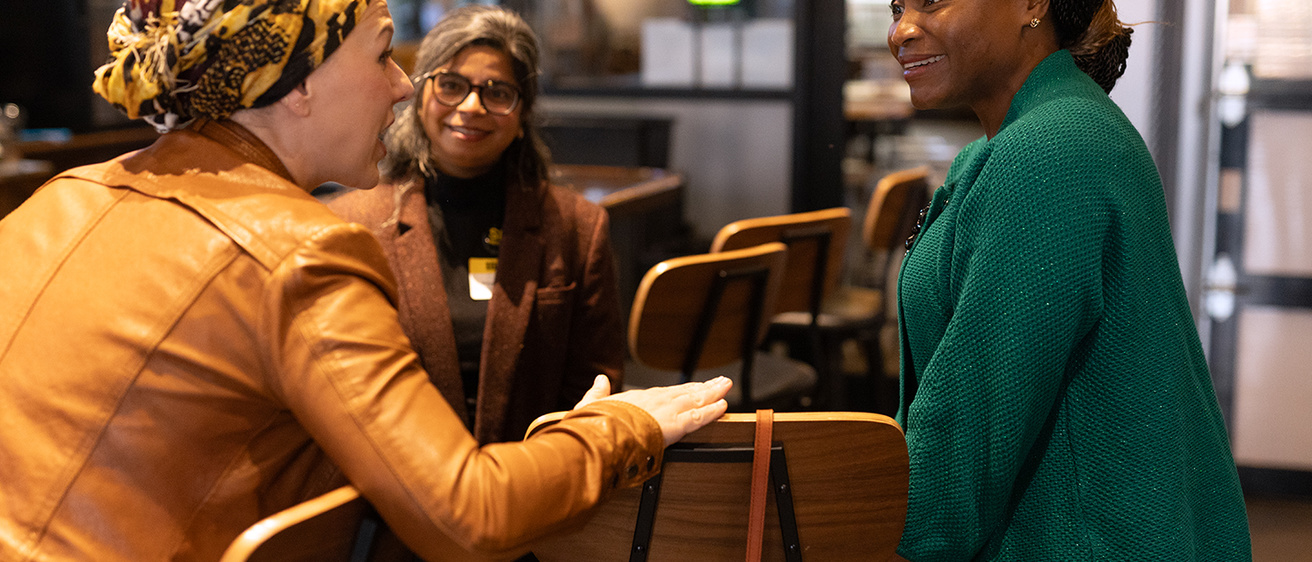The University of Iowa is dedicated to giving everyone an opportunity to thrive on campus, and a series of programs and initiatives implemented through the 2022-2027 Strategic Plan are helping students do just that.
Recent data underscores this commitment, with the university achieving record four-year graduation and first- to second-year retention rates. These milestones, while significant, represent just one aspect of the university's goals to help every student achieve success.
UI faculty, staff, and administrators are continuously working to start and improve initiatives that not only enhance academic outcomes but also ensure students are prepared for their careers and can navigate their collegiate experience. Students can see these efforts before even stepping foot on campus, through Iowa’s unique combination of accessibility and affordability for everyone who wants to become a Hawkeye.
One such effort is the First Gen Hawks program, which provides support and learning opportunities to first-year, first-generation students. Another is the Hawkeye Work Grant, which provides employment opportunities and supplemental funding to first-year students who have a significant financial need.
Students at Iowa also receive support for experiences outside of the classroom with the Hawkeye Experience Grant. The grants—which total $50,000 annually to offset costs from internships, research, or study abroad experiences—were given to 28 students in 2023 and 21 students in 2022.
Angie McKie, assistant provost and Pomerantz Career Center executive director, says the Hawkeye Experience Grant began in 2020 to ease cost of living and other expenses for internships only, but it was expanded to more experiences after receiving Public-Private Partnership funding in 2022.
“We wanted to make sure we were able to offset some of the financial barriers for more students than just those who participate in internships,” she says. “There are other types of experiences that may be more appropriate for some students, especially those considering graduate and professional programs, such as going abroad or doing research.”
Jennifer Noyce, Pomerantz Career Center associate director, says Hawkeye Experience Grant recipients reported that their experiences boosted their confidence and improved their communication skills, which they then take back to the classroom.
“Each individual student comes back with something they can launch their career with,” Noyce says. “All build their résumés, and with research, they are building analytical skills for graduate school. With internships, they are creating a wider network. With study abroad, they are increasing their global awareness.”
Allison Rux, who graduated with a degree in human physiology in fall 2023, learned about the Hawkeye Experience Grant while searching for funding opportunities for an internship last summer at Harvard University, where she worked in a lab at the Brigham and Women’s Hospital. Without the grant funding, she says it would have been financially difficult to afford to live in Boston for the summer.
During the internship, she worked on projects related to melanoma research, autoimmune research, and potential therapeutic treatments.
“I was exposed to new techniques and protocols that I have already been able to apply to my continued research at Iowa,” Rux says. “I came back from the internship excited and ready to hit the ground running on new projects and ideas. It also was my first time participating in any sort of cancer research, which I feel was an invaluable experience that allowed me to step outside of my comfort zone.”

Yaj Kulkarni, a master’s student in mechanical engineering, also was looking for funding so he could take part in an internship in Houston last summer at the NASA Johnson Space Center. Thanks to the grant, he worked in a lab that specialized in exploration exercise, which focuses on maintaining and improving the health of astronauts, when he was an undergraduate student.
“I brought back technical skills as well as experiences that helped me determine what I value from my work and the projects that I do,” Kulkarni says. “I learned to value a work-life balance, efficiently communicate my ideas, and it was a great résumé booster. Without the grant, I would have been in a very difficult position financially. I am glad to say that it was an experience that I don’t have to regret missing out on.”
Graduate student support
The UI’s commitment to student success extends to supporting graduate students, as well. One initiative is the GradLife P2P mentorship program, which pairs first-year PhD students with a peer mentor from another discipline. This provides first-years with someone they can ask questions of as they transition into their program. More than 70 PhD students are matched this academic year.
“Graduate school transition challenges range from what to do on campus to how to dress as a teaching assistant to how to address faculty members,” says Jennifer Teitle, assistant dean for graduate development and postdoctoral affairs in the Graduate College. “The informal support of a peer mentor helps individuals navigate the complexities of graduate education, strike a balance between academics and personal life, and access well-being resources. This support is crucial in creating an environment where students feel valued and supported, which, in turn, leads to a thriving university community.”
Sydney Arlis, a fifth-year PhD student in the integrated biology graduate program, emphasizes the importance of her role as a P2P mentor in making social connections.
“I remember how difficult it was for me to adjust to a new city and a new department when I first started, so I am glad I can support first-year students in that endeavor and be a safe resource for them to come to with any challenges they may be facing,” Arlis says. “My experience as a mentor will allow me to be a more effective leader in whatever I choose to do following graduation.”
